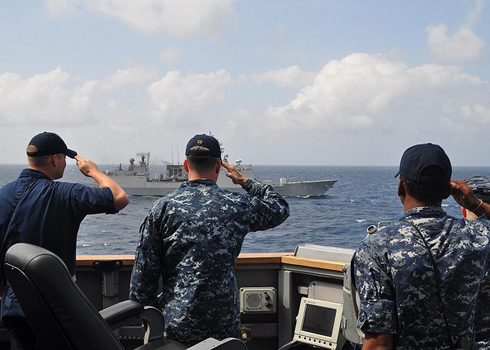
If asked how China, the United States, Japan and other Asian countries might engage with each other more constructively, it is doubtful that the first word that would come to mind would be “Mongolia.” And if then asked what mechanism Mongolia would use to further mutual comity and understanding, it is unlikely that ‘Khaan Quest’ would be mentioned. Yet there are compelling reasons to justify both answers. Military-to-military diplomacy is an important form of statecraft and its utility in Asia remains obvious.
This past summer marked the 10th anniversary of the Mongolian Armed Forces’ Khaan Quest exercises, which among other activities brings militaries from around the world to share their best practices in multinational peacekeeping operations (PKO). This focus may at first appear narrow, but for three reasons the impact of Khaan Quest is potentially positive and significant.
Reason #1: Khaan Quest has symbolic value in a historically fractured and suspicious region. Indeed, it is a symbol, in the words of Mongolian President Tsakhia Elbegdorj, of “mutual respect among nations . . . and a vivid example of how countries can collaborate despite differences in forms of government, social and economic systems.”

